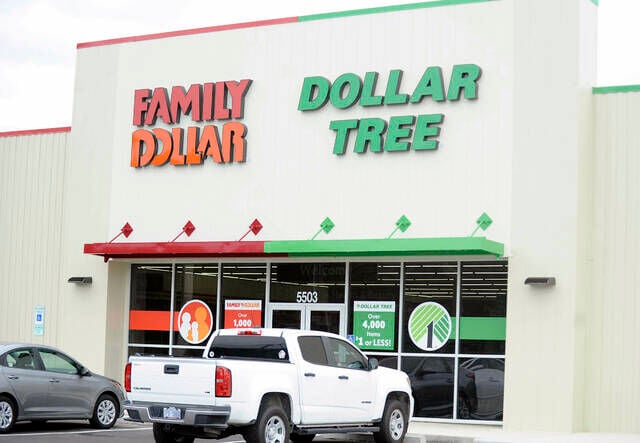
Carolina Public Press - As Dollar Tree looks for a buyer for the North Carolina-founded Family Dollar franchise, what comes next for shoppers relying on its cheap goods remains unclear.
Based in the Charlotte area since Family Dollar’s foundation in 1959, Virginia-based Dollar Tree purchased the chain in 2015 for $8.5 billion, then shuttered its North Carolina headquarters in 2018.
Dollar Tree, which has struggled to incorporate Family Dollar into its portfolio for nearly a decade, announced plans last week to unload Family Dollar. Though Dollar Tree is currently seeking a buyer, it is also considering a “spin off or other disposition” of the Family Dollar stores and brand. The fate of Family Dollar and its 459 stores across North Carolina remains uncertain.
“They were hoping there would be synergy between Dollar Tree and Dollar General, but they could never really make them fit together,” UNC-Charlotte economics professor Matthew Metzgar told Carolina Public Press.
“Dollar Tree is bigger in suburban areas and a little pricier, and Family Dollar is bigger in low-income, often urban areas,” Metzgar said. “They were producing different products for different markets, and they just weren’t able to be successful.”
In February, Family Dollar faced a $41.7 million fine following the discovery of a rat-infested Family Dollar warehouse in Arkansas, a blow that resulted in the closure of nearly 1,000 stores nationwide. In 2023, Family Dollar operated at an overall loss of $2.6 billion.
In a June 5 statement, Dollar Tree CEO Rick Dreiling said the company’s priority is to build the Dollar Tree brand through expanded price point offerings — up to $7 — and new store openings, including the recent acquisition of 170 stores from the bankrupt 99 Cents Only chain.
Saving Family Dollar turned out to be incompatible with that goal.
“The unique needs of each banner at this time — transformation at Family Dollar and growth acceleration at Dollar Tree — lead us to the decision to conduct a thorough review of strategic alternatives for the Family Dollar business,” Dreiling said.
But what is the future for the tens of thousands of North Carolinians who are employed by or shop at Family Dollar?
According to commercial real estate research company CoStar, industry analysts are predicting that a private equity group will purchase Family Dollar, divide the chain up into smaller groups of stores, and sell it off piece-by-piece.
Whether the brand would survive at all is unclear, and whether, from the point of view of public health, this is a good thing or a bad thing is even less so.
Communities across North Carolina and nationwide are growing ever more dependent on dollar stores like Family Dollar, Dollar Tree, and their main competitor, Dollar General, to meet their basic needs.
A 2023 study from the American Journal of Public Health showed that dollar stores are actually the fastest-growing grocery retailers in the country, particularly in rural, low-income communities in the South.
Between 2008 and 2020, household expenditures on dollar store food products in rural homes more than doubled.
This comes at a cost. “As the dollar stores enter, then you tend to see a drop in sales at the existing independent grocery stores in rural areas,” Metzgar said. “It creates limited options for fresh produce and fresh meat.”
The food options in dollar stores are generally processed and packaged, higher in calories and lower in nutritional value. Over-reliance on dollar stores has the potential to increase rates of obesity and diabetes, issues that disproportionately burden low-income areas.
“The South is a hot spot — the dollar-store business model originated in the South,” explained Sean Cash, an economist at Tufts University and lead author on the AJPH study. “They have more distribution centers there, and consumers there have supported this growth.”
Family Dollar employed thousands of Charlotte-area workers and had a board of directors with deep local ties until the sale to Dollar Tree in 2015.
Though these jobs migrated north to Virginia, North Carolina consumers still frequented the franchise’s storefronts, and continued to be loyal even after 14 locations across the state faced fines in April for overcharging customers.
Low-income communities are more likely to feel the brunt of skyrocketing grocery prices, and while Dollar Tree raised prices 25% in the first quarter of 2022 — the majority of products now cost $1.25 or higher — Dollar Tree and Family Dollar are still very affordable compared to other major grocery chains.
If Family Dollar does end up closing some or all of its doors, North Carolinians may lose access to the cheap food options that drove out local grocers in the first place. This has the potential to expand the food deserts that already span much of the state.
